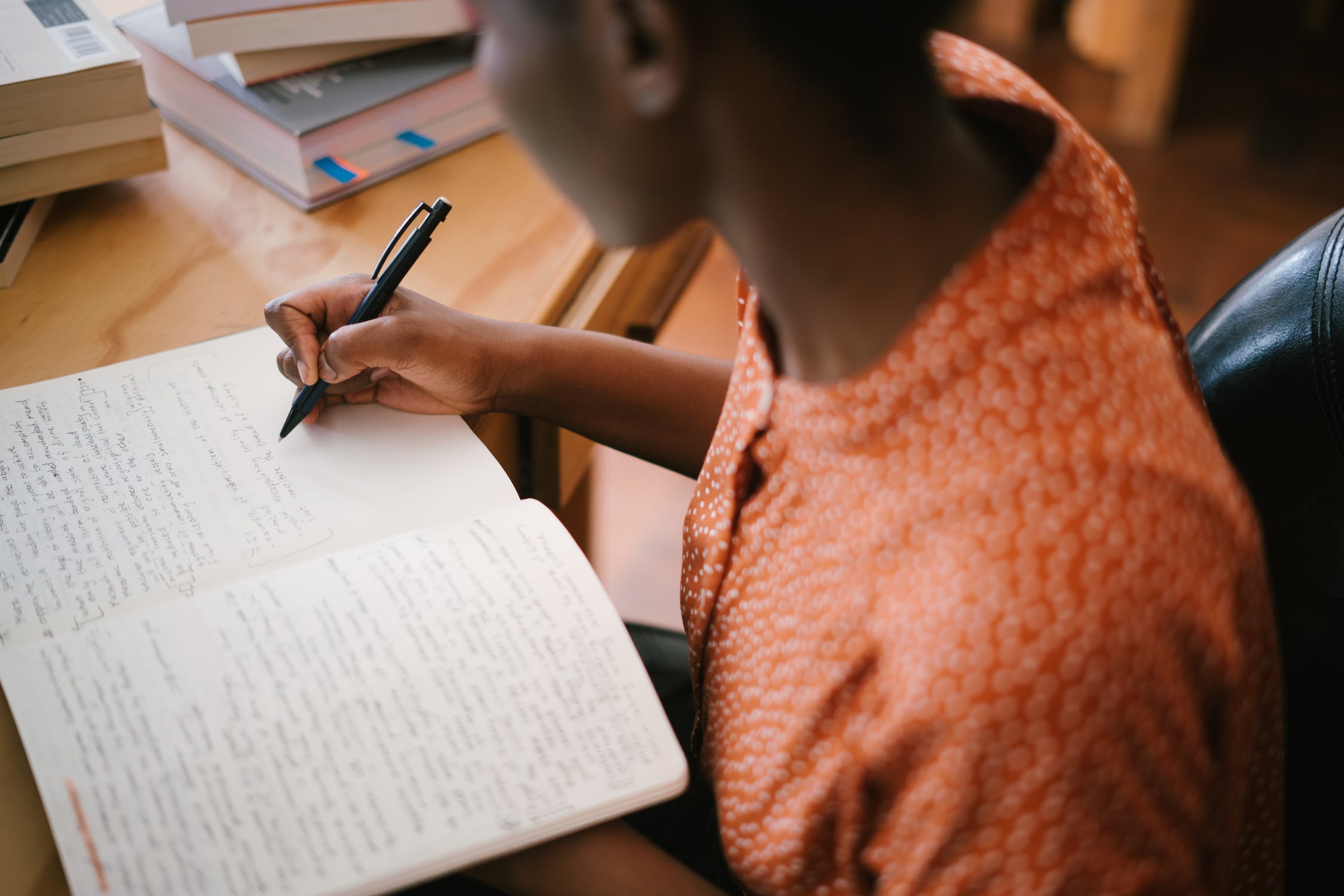I often find myself cutting back on my sleep when I’m super busy, even though I am a huge fan of catching some z’s. (I mean, we all pulled our fair share of all-nighters during college, cramming before a big exam, right?) Now that I’m out of school, I still find myself sacrificing a good night’s sleep when I have lots going on.
And I feel like I should be using this time to do something productive, not sleeping like a lazy bum!
WRONG.
When it comes to learning and memory, sleeping is actually one of the most important things you can do to consolidate your knowledge. We know this from the sleep science that has been a very active area of research over the last decade in the fields of cognitive science, psychology and neuroscience.
It’s nice to know it’s not just team Brainscape that’s interested in learning more about why sleep is good for us! In this article, we'll explore how sleep is useful to your learning and whether tactics like listening to audio—such as language tapes—while you sleep can actually help you memorize information.
[See also: How to study effectively with less total effort]
Can you learn while sleeping?

At first glance, the answer seems to be just simple: no. We sleep to rest; we rest to recover energy for the day ahead (at which point we might resume our learning). Nevertheless, research has found that sleep supports a diversity of other functions as well—functions that are not as intuitive as the conception of sleep as a recuperative process. One of the most interesting functions that researchers have found evidence for is sleeping as a learning and memory aid.
So, how does sleep help us to learn and remember? Well, we’re actually not learning anything while we sleep in the typical sense of learning. Instead, it seems that sleep supports learning in two main ways:
- It protects the formation of new memories by interfering with the disrupting effects associated with wakefulness.
- It consolidates these memories according to relevance and future expectations of usefulness.
So, while you don't really learn while sleeping, sleep absolutely supports learning in important ways. First, sleep is not only organizing the learning of the prior hours we have spent awake, it is also preparing us for future learning. We can, therefore, say that sleep optimizes learning by making sure that we don’t forget what we need to remember and setting ourselves up to learn later on.
[On a related note, did you know that the time of day you study can impact your learning?]
There are even some more recent studies that have been looking into how napping might influence our learning and memory. These seem to make the surprising conclusion that napping actually is an effective way of recharging the brain for learning.
Sleeping also improves your memory

Sleep appears to be especially important for remembering facts.
One article on Science Daily, entitled "Memory Links to 40 Winks", discussed the importance of getting some sleep after making plans or to-do lists—before executing the plan itself. They cite research done at Washington University in St. Louis that suggests that sleep helps us remember what we need to do in the future (a.k.a. prospective memory). This is because sleep helps to strengthen our associations between the task that we intend to do (e.g., email a colleague) and the context that triggers the memory of this task (e.g., opening your inbox).
If you find this stuff interesting and have an hour and a half to spare, we recommend that you check out the video “Sleep, Memory, and Psychiatric Health” featuring Robert Stickgold, which discusses the general importance of sleep for memory consolidation, highlighting the role of different phases of sleep for different types of memories. If you have less time, try this one.
What about listening to audio when I sleep?
One popular learning myth (wishful thinking?) is that if you listen to lectures or language tapes in your sleep, you may actually pick up on new concepts or vocabulary, which would be awesome, right? Effortless learning!
Unfortunately, the science is fairly draconian in its ruling on this one: absorbing complex information from scratch by listening to audio during sleep (and knowing it perfectly upon waking) is almost certainly impossible.
Having said that, a study published in Current Biology was able to show that participants who listened to a foreign language word pairs in their sleep were primed to understand what those words meant when they were awake … even though they had never heard them before while conscious!
“If you present ‘biktum’ and ‘bird’ to sleeping humans, their brains can make a new connection between the known concept ‘bird’ and the completely new and unknown word, ‘biktum,’” said Marc Züst, co-first-author of the paper. “This sleep-formed memory trace endures into the following wakefulness and can influence how you react to ‘biktum’ even though you think you’ve never encountered that word before. It’s an implicit, unconscious form of memory – like a gut feeling.”
As for how this can actually help you pass your biology or bar exam … well, you’re better off putting in the study time and using tried-and-tested methods for effective learning like spaced repetition and getting good nights’ rest.
Remember: sleep is crucial for the consolidation of memory, so if you take a nap after a good study session, you’ll retain that information a whole lot easier (with further review after your nap). However, confidently learning things from scratch while you sleep is the stuff of science fiction at this point.
Though, it would be nice, wouldn’t it?
Catch some sleep whenever you can
So can you learn while sleeping? Well, it's not exactly learning, it's more like consolidating learning. Still, if we have learnt anything from this, it's that we must make sure that we get enough sleep on a daily basis. An interruption in a person’s sleep pattern has not only been associated with learning deficits and forgotten memories but also with conditions such as obesity, stress, and anxiety.
Read: 'Is waking up early bullsh*t?'
If your job/school/family does not permit you to get the recommended 7 to 8 hours of sleep during the week, you might find this article on sleeping more on the weekends to be useful. It cites research that emphasizes the danger of sleep deprivation for your attention span, alertness, and reaction times—clearly things that you need in order to have a productive workday. You can also use naps to study more effectively.
Whether you’re prepping for a stressful week at work, overwhelmed by a long to-do list, or studying for a big test … GO GET SOME SLEEP!
Sources
Depner, C. M., Melanson, E. L., Eckel, R. H., Snell-Bergeon, J. K., Perreault, L., Bergman, B. C., Higgins, J. A., Guerin, M. K., Stothard, E. R., Morton, S. J., & Wright, K. P. (2019). Ad libitum Weekend Recovery Sleep Fails to Prevent Metabolic Dysregulation during a Repeating Pattern of Insufficient Sleep and Weekend Recovery Sleep. Current Biology, 29(6), 957-967.e4. https://doi.org/10.1016/j.cub.2019.01.069
Kelley Cappello. (2020, December 21). The Impact of Sleep on Learning and Memory. Chronobiology and Sleep Institute | Perelman School of Medicine at the University of Pennsylvania. https://www.med.upenn.edu/csi/the-impact-of-sleep-on-learning-and-memory.html
Mander, B. A., Santhanam, S., Saletin, J. M., & Walker, M. P. (2011). Wake deterioration and sleep restoration of human learning. Current Biology, 21(5), R183–R184. https://doi.org/10.1016/j.cub.2011.01.019
Museum of Science. (2014, November 20). Sleep, memory, and dreams - Robert Stickgold, PhD [Video]. YouTube. https://www.youtube.com/watch?v=XUA3fL4mzhg
National Institute of Neurological Disorders and Stroke. (2024, September 5). Brain basics: Understanding sleep. https://www.ninds.nih.gov/health-information/public-education/brain-basics/brain-basics-understanding-sleep
Sampson, A. (2024, April 4). Home - Sleep Research Society. Sleep Research Society. https://sleepresearchsociety.org/
Sandoiu, A. (2018, March 8). Can you learn in your sleep? Yes, and here’s how. Medical News Today. https://www.medicalnewstoday.com/articles/321161
Washington University in St. Louis. (2010, June 10). Memory links to 40 winks. ScienceDaily. https://www.sciencedaily.com/releases/2010/06/100630162359.htm
Yale School of Medicine. (2022, May 10). Sleep’s crucial role in preserving memory. https://medicine.yale.edu/news-article/sleeps-crucial-role-in-preserving-memory/
Züst, M. A., Ruch, S., Wiest, R., & Henke, K. (2019). Implicit Vocabulary Learning during Sleep Is Bound to Slow-Wave Peaks. Current Biology, 29(4), 541-553.e7. https://doi.org/10.1016/j.cub.2018.12.038
